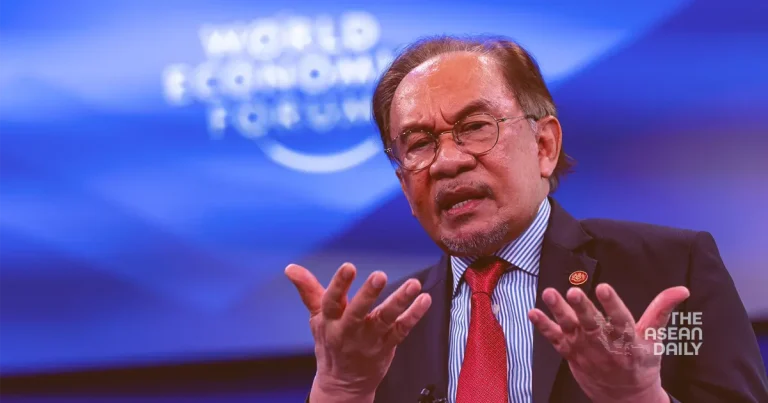23-1-2025 (DAVOS) Malaysian Prime Minister Datuk Seri Anwar Ibrahim has outlined ASEAN’s careful strategy towards Myanmar, emphasising the regional bloc’s commitment to fostering peace whilst respecting diverse governance systems within Southeast Asia.
Speaking at an ASEAN Plenary session titled “Even Stronger Together” at the World Economic Forum, Anwar highlighted recent diplomatic progress through discrete intelligence channels, marking a shift in engagement dynamics with Myanmar’s authorities.
“We’re witnessing encouraging signs of dialogue,” Anwar noted, whilst stressing that ASEAN’s approach isn’t about imposing a uniform system of governance. “Our member states, from Malaysia to Vietnam, operate under different systems. What matters is ensuring some form of participatory democracy.”
The humanitarian cost of the ongoing crisis featured prominently in the Prime Minister’s address. He pointed to the plight of approximately 200,000 Myanmar refugees in Malaysia alone, declaring it “utterly unconscionable to allow this situation to persist”. The crisis has also created significant refugee populations in neighbouring Bangladesh.
Anwar revealed that behind-the-scenes discussions between intelligence authorities have yielded promising developments, particularly in establishing frameworks for inclusive crisis resolution. However, he emphasised that Myanmar’s leadership must address concerns about discriminatory practices and violence against minority groups.
The Malaysian leader also touched upon ASEAN’s broader diplomatic positioning, advocating for balanced engagement with global powers. “As a trading region, we must maintain constructive relationships across the board,” he said, highlighting the importance of American and European investment whilst acknowledging China’s significance as a regional neighbour.
Digital connectivity emerged as another key theme, with Anwar emphasising ASEAN’s increasing focus on artificial intelligence as a tool for enhancing regional cooperation. “Whilst digital advancement is crucial, economic fundamentals remain paramount,” he observed.
The high-level session, moderated by World Economic Forum President Borge Brende, included Vietnamese Prime Minister Pham Minh Chinh, UN Special Envoy to Myanmar Julie Bishop, Mastercard Global Chair Michael Miebach, and Bangladesh’s Professor Muhammad Yunus among its distinguished panellists.




